Big Red Book
Celebrating television's This Is Your Life
Derek DOOLEY (1929-2008)
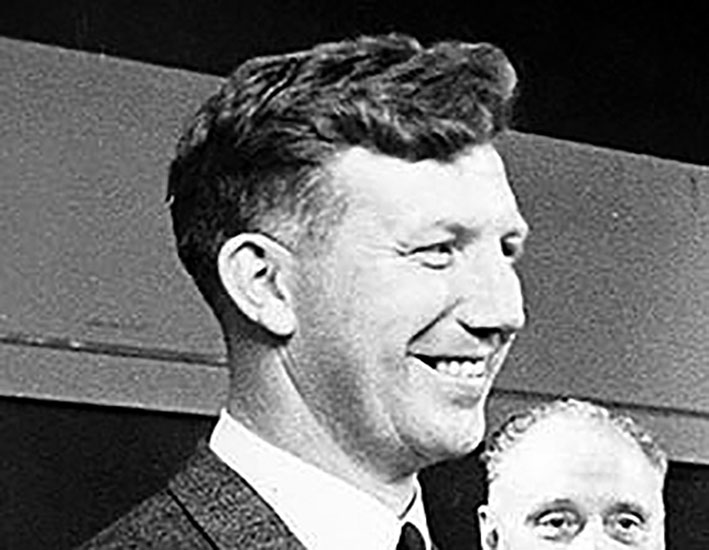
THIS IS YOUR LIFE - Derek Dooley, former footballer, was surprised by Eamonn Andrews as he arrived at King's Cross station in London, having been led to believe he was in the capital for a business meeting.
Derek, who was born in Sheffield, began his football career as an amateur with Lincoln City FC in 1946 before signing as a professional with Sheffield Wednesday FC the following year. He quickly proved himself a dynamic goalscorer, scoring 46 goals in his first season - breaking the post-war goal-scoring record and helping the club reach Division 1 as champions.
His career ended abruptly aged only 23 after complications from a broken right leg sustained during a match against Preston North End FC led to amputation after it had become infected. Although Derek worked as an assistant sales manager with a local bakery following the accident, he continued his association with Sheffield Wednesday FC, managing the club's youth team.
programme details...
- Edition No: 168
- Subject No: 169
- Broadcast live: Mon 30 Oct 1961
- Broadcast time: 7.55-8.30pm
- Venue: BBC Television Theatre
- Series: 7
- Edition: 5
on the guest list...
- Charles - father
- Jennie - mother
- Roy Slack
- Ernest Ward
- John Tocher
- Alan Brown
- George Thompson
- Winifred Weston
- Richard Gunstone
- Eric Taylor
- Rev Bill Matthews
- Frank Taylor
- Douglas MacMillan
- Sylvia - wife
- Martyn - son
- Peter Musson
- Terry Rogers
- Gordon Davenport
- members of the Birley Amateurs Filmed tribute:
- Arthur Eyres
production team...
- Researcher: John Ralph
- Writer: John Sandilands
- Director: Yvonne Littlewood
- Producer: T Leslie Jackson
- with thanks to Sylvia Dooley for her contribution to this page
Sylvia Dooley, wife of Derek Dooley, recalls this edition of This Is Your Life in an exclusive interview recorded in June 2013
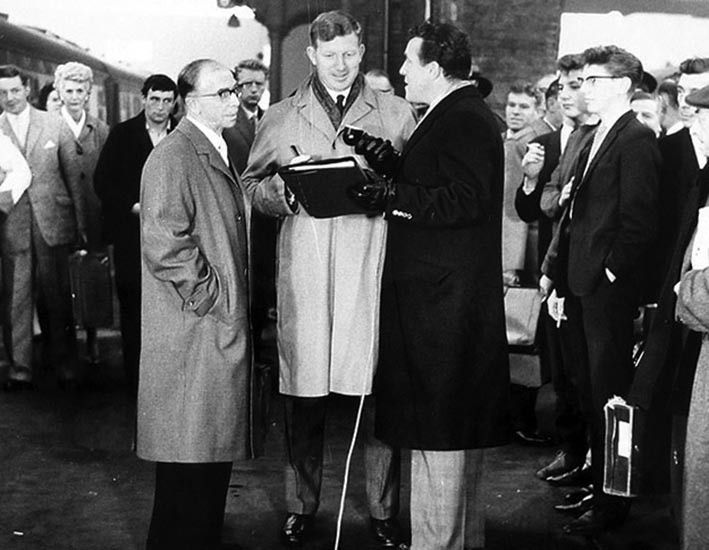
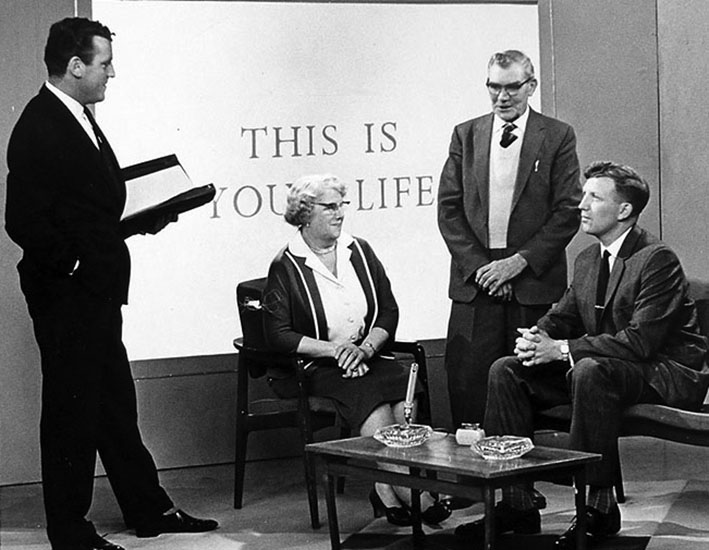
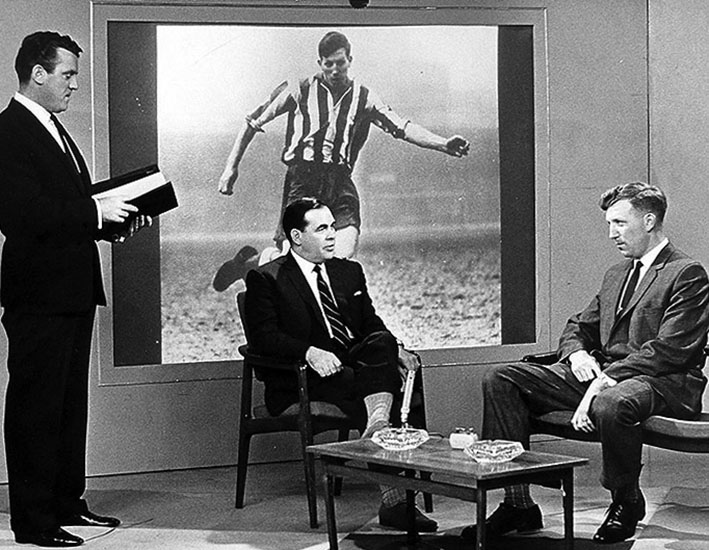
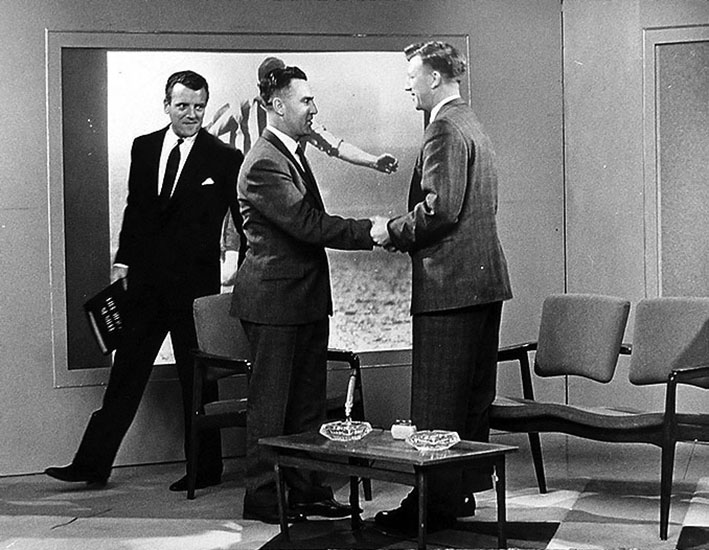
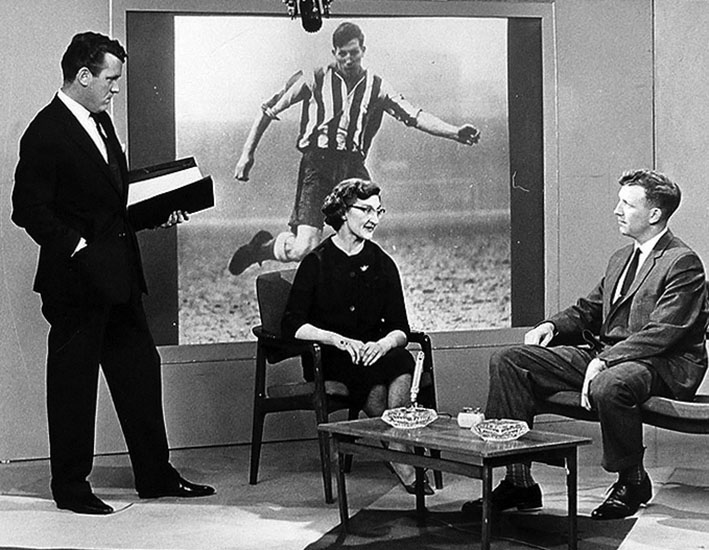
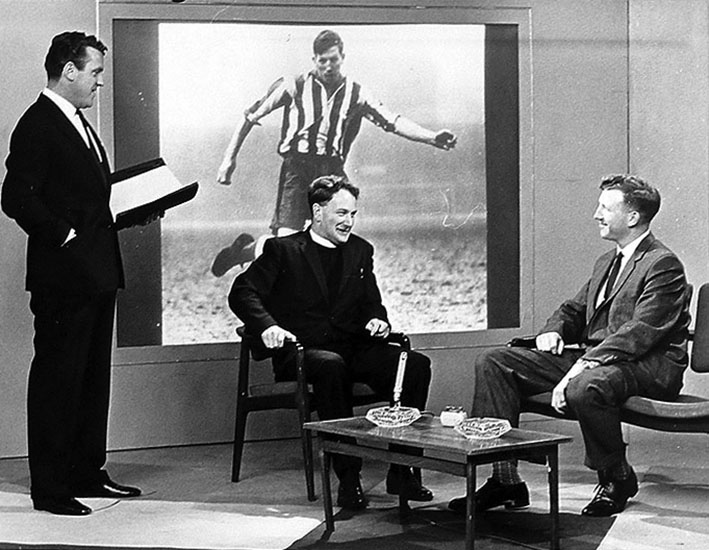
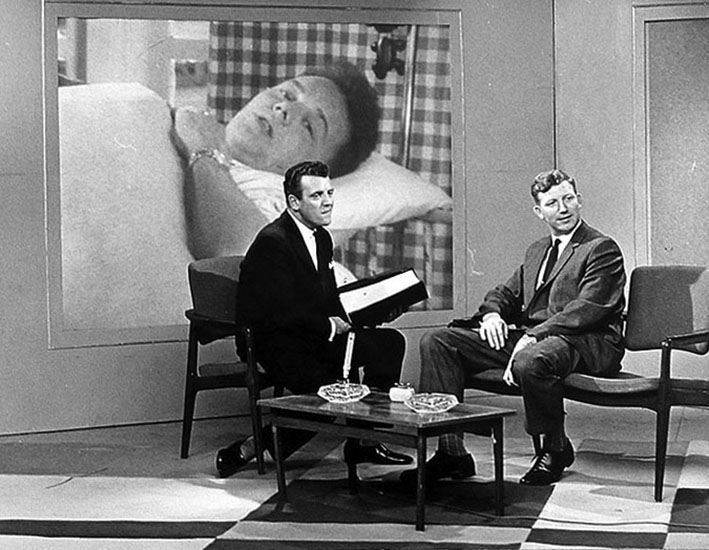
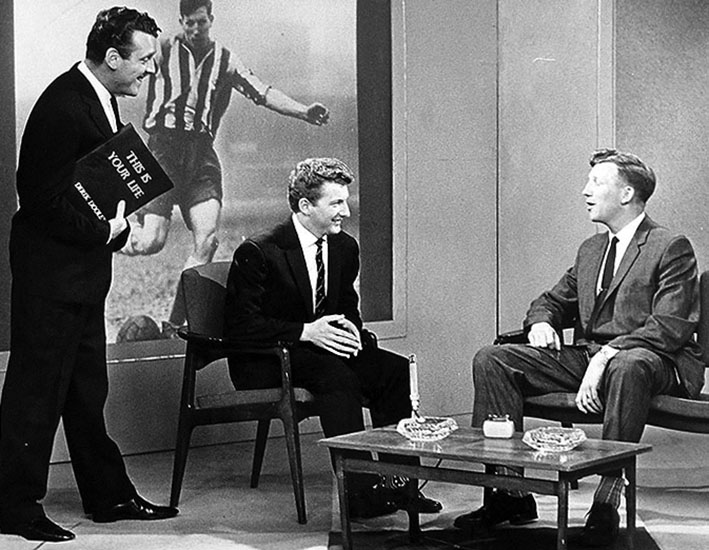
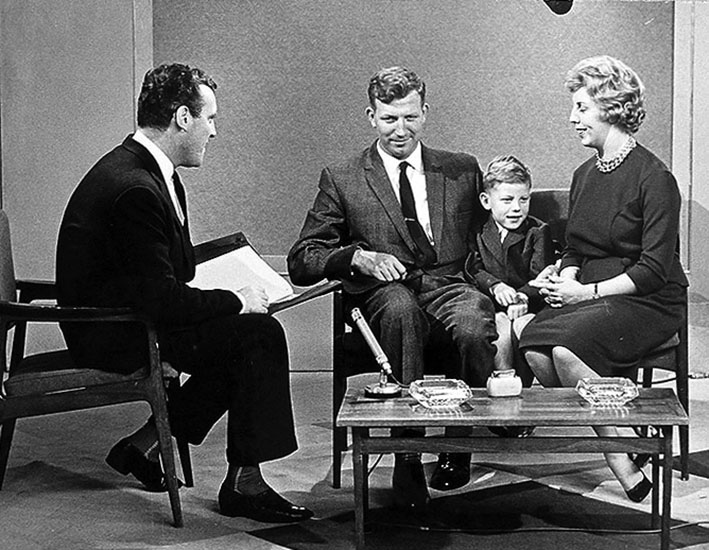
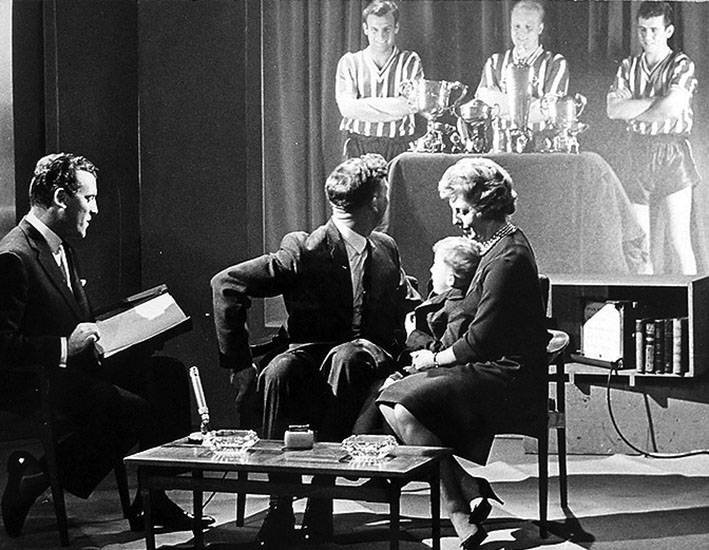
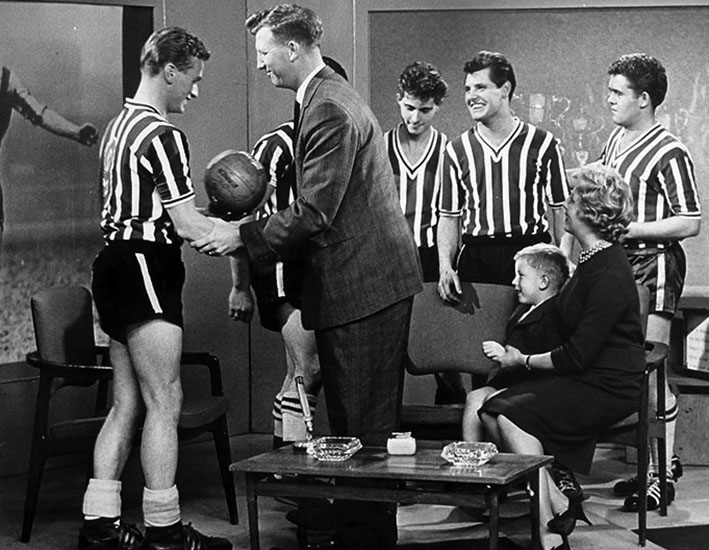
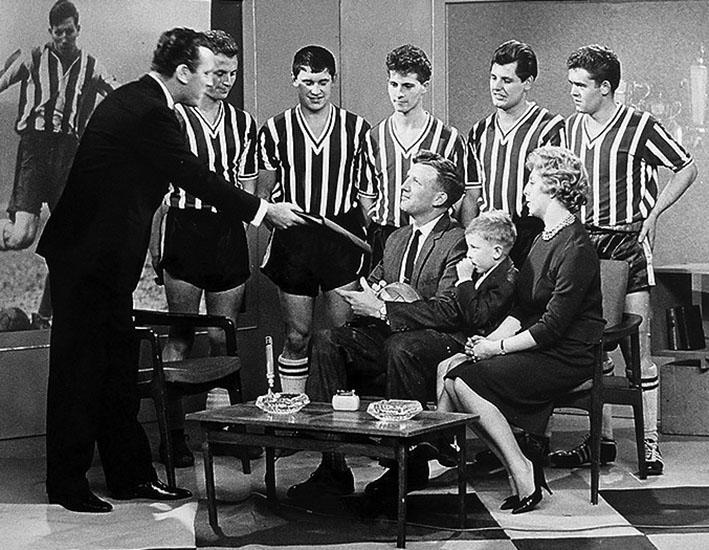
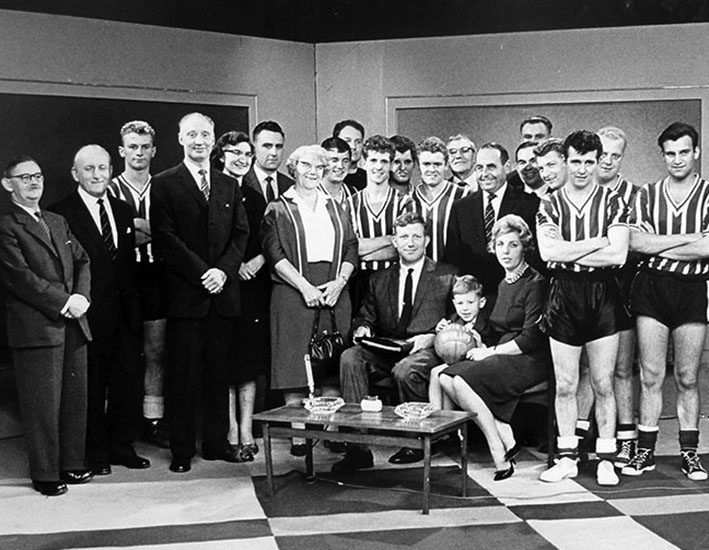
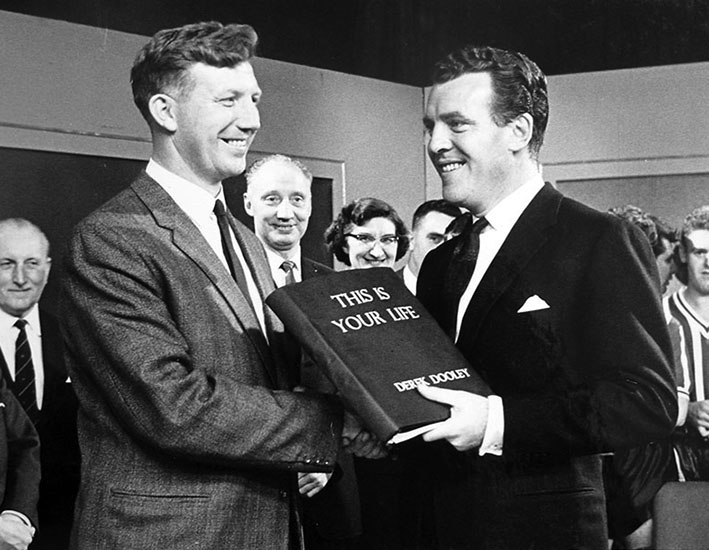
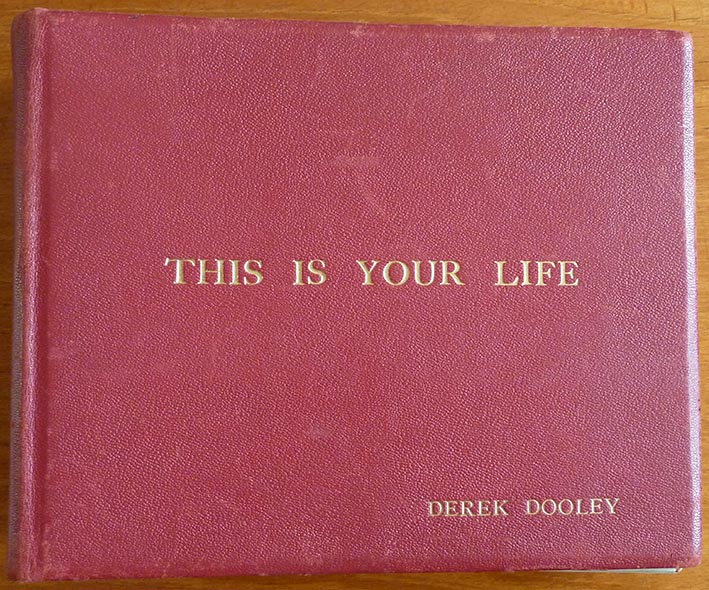
Photographs of Derek Dooley This Is Your Life - and a photograph of Derek Dooley's big red book
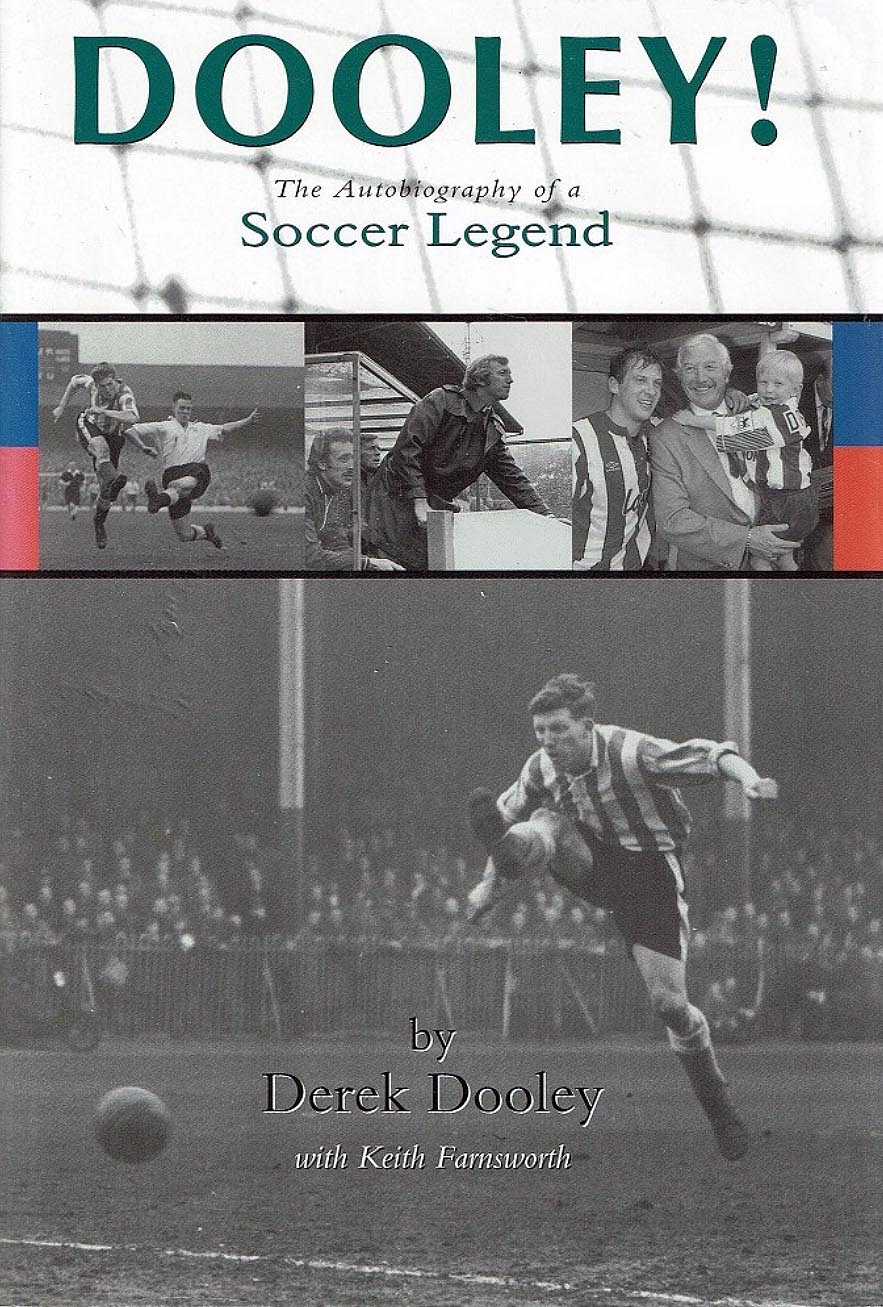
By late 1961 my playing days had been over for almost nine years and at nearly thirty-two years of age I had settled into a routine which was comfortable and fulfilling. I liked working at Gunstone's and enjoyed being involved in football every weekend and on at least a couple of evenings a week. Moreover, it was a nice bonus to still be remembered and regarded with affection by the people of Sheffield. I was conscious that what I had achieved during my brief Football League career and the circumstances in which it had all ended had given me a unique status in the hearts and minds of the local public, and I felt proud and grateful.
However, I did not think my fame extended much beyond my home region and never imagined myself as a potential subject for a national television programme such as This Is Your Life. When it happened, I was staggered. I thought I was far too young to qualify and, in any event, all I had done was play football and lose my leg. There didn't seem much of a story to tell!
It is amusing now to reflect on this episode and recall the curious little incidents that occurred during the build-up to my surprise appearance on millions of black-and-white television sets all over the country. People suggested afterwards that I must have known what was happening but, honestly, it was a complete surprise and only in hindsight did the advance clues click in my head.
By coincidence, the programme was one I seldom missed watching because it was invariably screened on a Monday evening when I was alone in the house as Sylvia went to a city-centre cinema with her sister. On the Monday prior to my appearance the subject who received the famous big red book from Eamonn Andrews was a priest who had founded a boys' town in Rome. It was a particularly moving show and, having been impressed with the story of how this priest had worked with orphans and under-privileged lads, I couldn't wait to tell Sylvia about it when she got home from the pictures.
Sylvia, of course, knew I was to be the next subject and, during our chat about the priest, she asked me how I would react if I ever found myself on This Is Your Life. I laughed and said: 'Well, that's unlikely because I've done nothing compared with the bloke who's been on tonight'.
Much later Sylvia admitted she had been scared stiff that she might give the game away and inadvertently reveal the secret plans that were afoot. On a least a couple of occasions I awoke in the night and found her staring out of the bedroom window. When I asked what was wrong, she said she couldn't get to sleep. Like most men I hadn't the nous to see something was troubling her.
In those days I was going down to the union's training sessions at Hillsborough on Tuesday and Thursday evenings, and one day when I rushed home from work, had tea and began to prepare for my trip to the ground, I spotted my son Martyn drawing a figure on a sheet of paper.
'Who's that supposed to be?' I asked. He said: 'Oh, it's the man who had a cup of tea here yesterday'. I cannot remember how Sylvia explained the mystery man who had made such an impression on my son. Only long afterwards did I discover it was a researcher from the BBC!
I have to smile now when I remember how annoyed I was by an incident which occurred at work, little realising it was all part of the plot to get me on the show.
On the Friday afternoon, I was called into Eric Gunstone's office and he said: 'Derek, I want you to go to London with Fred Smith on Monday. There's this bakery which has a new type of retail van and I would appreciate your opinion'.
I have to admit my initial reaction was: 'It's a bit late, isn't it, leaving it while Friday afternoon to tell me I've got to go to London on Monday morning?' Poor old Fred must have been lost for words when I returned to his office and said: 'Why didn't you tell me earlier about this trip? Were you afraid to mention it? Why didn't you give me more warning?'
It didn't help that we were scheduled to travel on the Master Cutler train, which meant I would have to be up at six o'clock. In the meantime, I faced a long trip with the Wednesday Juniors on Saturday and, with only Sunday in which to relax, I was disappointed at the prospect of such an early start on Monday.
When I told Sylvia about the visit to a London bakery she didn't seem as surprised as I had anticipated. I never for a moment suspected that she had known about the plan before me, and it didn't occur to me there was anything even faintly odd about the way she insisted I should wear my best suit for the trip and take an overnight bag. I insisted: 'I'm not wearing my best suit to go round a bakery, and there's no need for an overnight bag because, whatever time we finish, I'm coming straight home'.
Arrangements had been made for Fred Smith to pick me up in his car on the Monday morning so we could travel down to the station together. I wasn't feeling best pleased really, and, when I was getting dressed, the small metal catch on my trousers broke. 'Well' said Sylvia, 'now you'll have to put your best suit on.' I said: 'Oh, no. Just put a safety pin in, it'll do'. How could I know I was going to meet Eamonn Andrews wearing a work suit with trousers held up with a safety pin!
The journey passed without incident and, with hindsight, I can say the only thing which didn't go quite as had been planned was the position in which our carriage finished on the platform when the train reached St Pancras. For some reason the driver pulled short of the buffers. Although I didn't know it, I was supposed to step out of the carriage and find myself facing Eamonn Andrews and the TV cameras. In the event, we stepped onto the platform twenty yards or so away from Eamonn and his crew. Unaware of what was supposed to have happened, I stopped to light my pipe and, spotting the cameras, turned to Fred and said: 'It looks as if they're expecting the Queen or some big celebrity'. Imagine my astonishment when we started walking down the platform and Eamonn suddenly stepped forward, smiled at my colleague and said: 'Hello, Fred!'
I remember thinking: 'They must be old pals. I wonder if Fred served with Eamonn in the army or something like that?'
Even when Eamonn turned and shouted me over, I didn't realise what was happening. I thought 'I must be going to appear on somebody's This Is Your Life as a guest'. I have never been more surprised in my life than when that familiar Irish voice said: 'Derek Dooley – this is your life!'
The shots of me arriving in London were recorded as the introduction to the show, which went out live from the Television Theatre at Shepherd's Bush the same evening. Once the drama of being dropped on at St Pancras was over, Fred disappeared and I found myself passing the day in the company of a BBC official. We had a coffee at the station buffet, later went for lunch at Simpson's on the Strand, then whiled away the afternoon at a cinema watching a film which I have long forgotten.
Appearing on the programme was an experience I have never forgotten but, like so many of the memorable moments in your life, this one flashed by in something of a whirl. Only when I returned to Sheffield and got back to normal was it possible to savour the privilege and pleasure of a very special occasion.
I can understand why so many of those who appear on this programme seem so overwhelmed with emotion, because it is a uniquely moving experience to meet up again with so many people from the past – and all the more so when they walk back into your life at the same time!
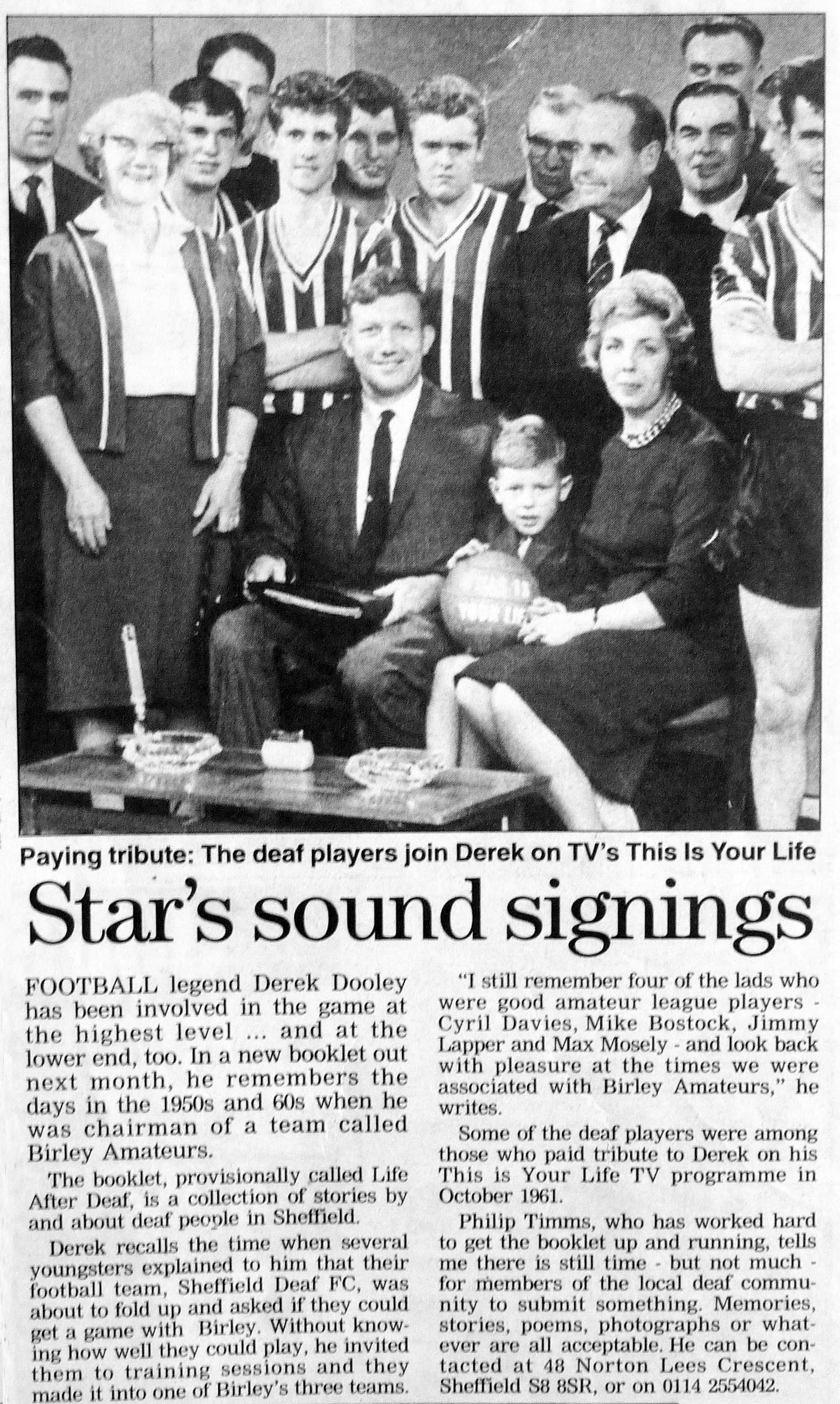
unknown source and date
FOOTBALL legend Derek Dooley has been involved in the game at the highest level ... and at the lower end, too. In a new booklet out next month, he remembers the days in the 1950s and 60s when he was chairman of a team called Birley Amateurs.
The booklet, provisionally called Life After Deaf, is a collection of stories by and about deaf people in Sheffield.
Derek recalls the time when several youngsters explained to him that their football team, Sheffield Deaf FC, was about to fold up and asked if they could get a game with Birley. Without knowing how well they could play, he invited them to training sessions and they made it into one of Birley's three teams.
"I still remember four of the lads who were good amateur league players - Cyril Davies, Mike Bostock, Jimmy Lapper and Max Mosely - and look back with pleasure at the times we were associated with Birley Amateurs." he writes.
Some of the deaf players were among those who paid tribute to Derek on his This is Your Life TV programme in October 1961.
Philip Timms, who has worked hard to get the booklet up and running, tells me there is still time - but not much - for members of the local deaf community to submit something. Memories, stories, poems, photographs or whatever are all acceptable. He can be contacted at 48 Norton Lees Crescent, Sheffield, S8 8SR, or on 0114 2554042.
Series 7 subjects
Max Bygraves | Mario Borrelli | Alastair Pearson | Brian Rix | Derek Dooley | Elizabeth Twistington Higgins | Sandy MacPhersonRonald Menday | Harry Day | Peter Finch | Charlie Drake | Timothy Cain | Isabella Woodford | David Park | Sefton Delmer
Coco (Nicolai Poliakoff) | Jenny Gleed | Arthur Davies | Tom Evans | David James | Kenneth Horne | Marie Rambert | David Butler
Glen Moody | Kenneth Cooke | Tom Breaks | Dora Bryan | Bob Oatway | Acker Bilk | Hester Meakin | Joe Filliston | Ellaline Terriss